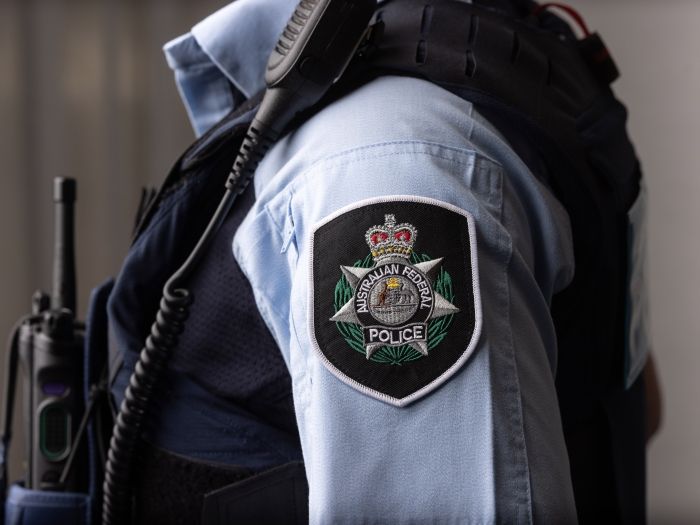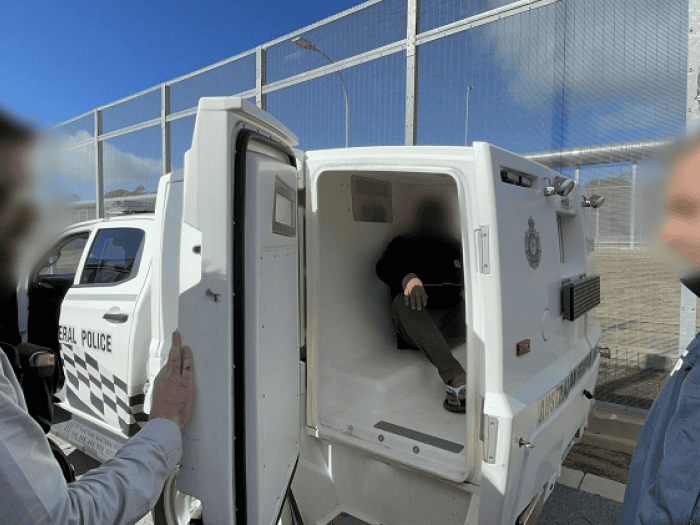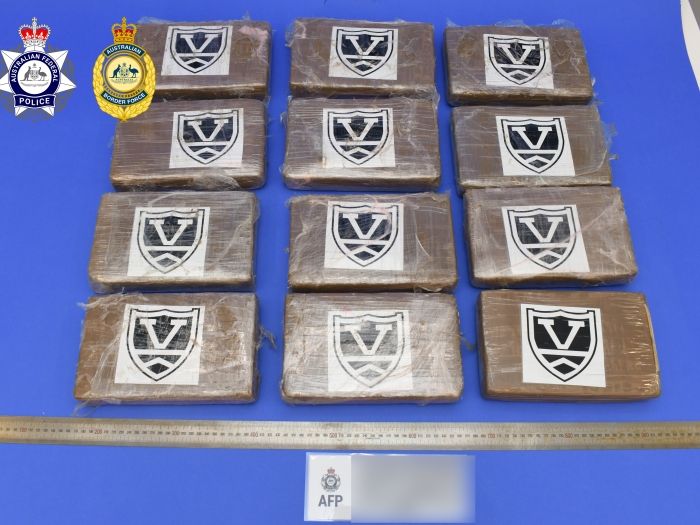Getting help with a search warrant
Our investigative services support other departments and agencies in their criminal investigations. One way we can help is by executing search warrants under Section 3E of the Crimes Act 1914.
To request our help, follow the Investigative services for Australian government bodies process.
Preparing your request to us
Your agency case officer should prepare and apply for the search warrants in consultation with your state or territory NOSSC.
Agency requests for our assistance in executing search warrants should:
- where possible, be forwarded to the AFP from a centralised point within your agency (the referring agency)
- in circumstances of multiple requests, be prioritised by your agency before being referred to the AFP
- be provided to the relevant NOSSC at least 28 days before the warrant is intended to be executed.
Urgent matters will be considered in line with other AFP priorities.
Your request should identify:
- the purpose of the search warrant
- the reason why a search warrant is needed
- the circumstances of the alleged offence/s
- the proposed timing.
It should also nominate and provide contact details for a case officer within your agency who is responsible for preparing the search warrant.
Requests for AFP assistance in the execution of a search warrant will need to state that the seizure of the evidential material is wholly for the purpose of a criminal prosecution and/or related action under the Proceeds of Crime Act 2002, and not a disciplinary, administrative or civil proceeding.
On receipt of a written request, we'll assess the request and advise your agency:
- if it has been accepted
- if further information is required, or
- that we are unable to assist.
When a request is accepted, we'll provide your agency with the name and contact details of the intended AFP executing officer.
Facilitating your request
Facilitating your agency's request for help with the execution of a search warrant depends on the following factors:
- Our capacity and resources to provide assistance at the time and place requested.
- Your agency's clear intention to undertake a criminal prosecution.
- Your agency's capacity to comply with the Australian Government Investigation Standards (AGIS), particularly concerning agency investigator qualifications, exhibit control, storage, security and disposal procedures.
- Your agency's agreement to provide appropriate resources, whether human, material or financial.
- Whether your agency has already used all other methods reasonably available to it, without success, to obtain evidence.
- Whether the execution of a search warrant is the most appropriate course of action to pursue at the time.
Any AFP requests for further information or other relevant instructions must be met before the request can be considered.
Search warrant provisions
The principal Commonwealth search warrant provision is Section 3E of the Crimes Act 1914. However, while this provision is capable of applying to all Commonwealth offences, the warrant may only be executed by a police officer.
Specific search warrant provisions existing in other Acts may be more appropriate in some circumstances, particularly where the legislation provides a mechanism for the forfeiture of items seized or they relate to a particular set of offences, for example, Customs Act 1901 or the ASIC Act 2001.
However, section 3D (2) of the Crimes Act 1914 provides that search warrant powers may be used even though another law of the Commonwealth provides search warrant provisions.
Per Section 3ZQU of the Crimes Act 1914, items seized under s3E warrant can be made available to officers of other state and Commonwealth agencies if necessary to prevent, investigate or prosecute an offence related to the items.
Per Section 3F(5) of the Crimes Act 1914, if items are seized under warrant, the warrant authorises the Executing Officer to make them available to officers of other departments or agencies if it is necessary to do so for the purpose of investigating or prosecuting an offence to which the items relate.
Preparing your search warrant
Your agency's case officer must hold a Certificate IV in Government (Fraud Control Investigations) per the Commonwealth Fraud Control Guidelines.
Your case officer should consult with the AFP case officer before obtaining the warrant. Seek advice from them on the need for a Section 3LA CA 1914 order relevant to the request for assistance. For example, passwords and access to electronic devices.
3LA orders may be applied for prior to the execution of a search warrant and can only be served on the ‘specified person’ prior to the item/s being seized.
We may not execute warrants obtained without prior consultation.
The search warrant should be obtained and all relevant planning aspects of the warrant execution settled 48 hours before the anticipated time of execution.
The AFP case officer may request the agency to make further inquiries if there are concerns about the adequacy of the information contained within the search warrant.
In consultation with your agency case officer and/or the DPP, the AFP case officer will determine whether it is appropriate or desirable for them to be in attendance when the warrant is issued.
Executing search warrants
The planning and execution of the search warrant is the responsibility of the nominated AFP Executing Officer.
The AFP Executing Officer will at all times be responsible for:
- search warrant execution
- seizure of evidential material or items
- control of the warrant and premises.
Where possible, our role should be limited to that of an AFP Executing Officer and to providing sufficient AFP members to ensure safety and containment at the premises.
A minimum of 2 AFP officers should be present for the execution process. However, for bank warrants the occupier of the premises may provide prearranged consent for the warrant to be executed.
The AFP Executing Officer will determine who will be authorised as a Constable Assisting (stipulated in the Act) for the search warrant. The Constable Assisting can't be involved in the arrest or searching of a person. They are permitted to use force against an object but not a person.
There is no legal requirement for Constables Assisting to be identified to the occupier of the premises. However, if the Executing Officer believes it is appropriate to identify other members of the search team, they should do so.
The AFP Executing Officer must ensure that all personnel involved in the execution process, including agency representatives, are appropriately trained and properly briefed on the task to be undertaken.
The AFP will not typically perform the role of property officer or searchers.
The AFP Executing Officer will assist in determining the number of your agency's representatives required to execute the search warrant, and ensure they are authorised as Constables Assisting (s.3C(1) of the Crimes Act 1914) for the search warrant.
Your case officer who swore the affidavit for the warrant should be present during the search warrant execution.
Execution of the search warrant will be as per the AFP Search Warrant Standard, Better Practice Guide on Search Warrants and other relevant AFP procedures.
Managing exhibits
It is essential that continuity of possession and protection of seized material is safeguarded at all times in respect to seizures made under warrant.
Upon completion of the execution of a search warrant, the AFP will transfer possession of relevant items seized by the AFP to your agency per Section 3ZQU of the Crimes Act 1914.
The AFP will generally retain currency, firearms, drugs and hazardous items.
Upon transfer of possession, your agency is legally responsible for the control, storage, security and disposal of the seized items as per AGIS and any agency handling procedures.
Your agency is responsible for ensuring that all seized material in its possession is maintained in its original condition and used for the purposes of criminal proceedings or any other lawful purpose set out in Section 3ZQU of the Crimes Act 1914.
Where your agency has retained possession of seized material, it is responsible for the final disposal of the material as per any court order, relevant legislation and agency exhibit handling guidelines.
The AFP Commissioner has delegated Commonwealth Officers performing the role of Agency Exhibit Registrars the authority to dispose of property as per Section 3ZQX of the Crimes Act 1914.
Where the AFP retains possession of seized material, we are responsible for the final disposal of the material. The AFP will consult with your agency where the disposal may raise contentious issues or require disposal consents from parties who may have interests in the property.
Exhibits held by agencies
Per AGIS, the agency must have a nominated Exhibit Registrar and written procedures detailing the handling of all seized material, including property seizure records, and storage and disposal of exhibits. There should also be written procedures addressing the audit of the exhibit registry.
In exceptional circumstances, the agency can request the AFP retain possession of the seized material. If this occurs, the agency should provide advance notice of at least 21 days, where practicable, of the seizure being required in court as evidence. We will provide all relevant witness/police statements, attend court and produce the seizure.
Return and destruction or disposal of exhibits
Where your agency has retained possession of seized material, it is responsible for the final disposal of the material as per any court order, relevant legislation and agency exhibit handling guidelines.
While your agency may seek advice from us concerning disposal in relation to complex matters, there is no requirement for your agency to notify or consult us regarding routine disposals.
Operational and administrative costs
The execution of search warrants may incur some substantial costs for:
- travel to remote locations
- specialist assistance and equipment, including computer forensics
- large-scale copying and other administrative costs
- transportation, storage and maintenance of seized items.
Both our agencies should seek to negotiate cost-sharing arrangements at an early stage to ensure such expenses are met.
Media
Consultation and coordination of any media response, if appropriate, concerning the execution of search warrants should be made between AFP National Media via our executing officer and the relevant department or agency.
Where a joint media response is to be provided, all agencies should ensure any material provided is in accordance with pre-trial publicity requirements, and adequately reflects each agency's contribution.
No information is to be provided to the media in relation to the search warrant or its execution without agreement on its release and content by the departments and agencies involved.
Privacy and confidentiality requirements
Both the AFP and your agency will acknowledge and protect the integrity of information and intelligence exchanged between us. The requirements of the Privacy Act 1988, the Australian Federal Police Act 1979, the Crimes Act 1914, Social Security legislation and other relevant Acts will be observed at all times.
Both the AFP and your agency will ensure that information is appropriately classified per the Protective Security Manual (PSM) requirements. All information received from other agencies will be accessed, handled and stored as per the PSM.





